Most of us don’t use shift + delete to permanently delete files, for everyday purposes we just hit Delete and let Recycle Bin take care of them. It acts as a buffer zone between deletion and permanent erasure. This buffer zone matters more than you might think given how often we accidentally delete files we didn’t mean to.
Without a buffer like Recycle Bin, such mistakes would cost us dearly, resulting in permanent data loss. But what happens when Recycle Bin itself runs into trouble?
Consider a situation where you delete an important work-related document. You thought the doc was unnecessary at the moment only to find out later that you urgently need it back. But when you tried restoring it, you faced an error message saying, “The Recycle Bin on K:\ is corrupted. Do you want to empty the Recycle Bin for this drive?” Such cases affect thousands of Windows users daily.
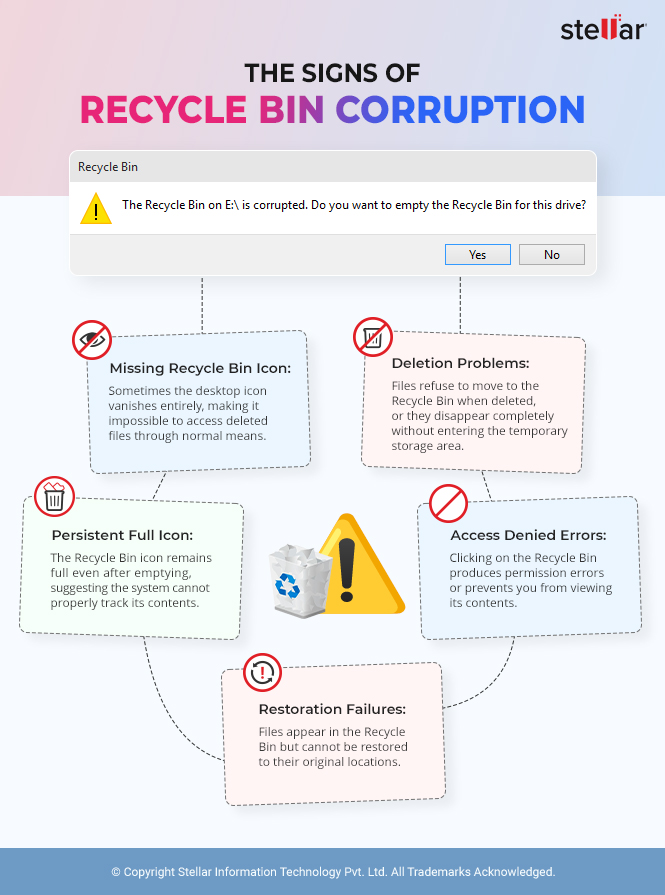
Recycle Bin Corruption: The Causes
The most prominent causes behind Recycle Bin corruption are:
- If the DLL file linked to Recycle Bin gets corrupted, the Recycle Bin may also get corrupted.
- Each partitioned drive on Windows has a hidden $Recycle.bin folder that holds your deleted files. Errors within this folder cause the Recycle Bin to become corrupted.
- If the system files in Windows is corrupted or wrongly configured, it can also cause Recycle Bin to become corrupted.
- PC cleaner software such as CCleaner or other similar apps sometimes remove important system files or change registry entries that manage Recycle Bin functionality.
- A sudden power cut or system crash can also cause the Recycle Bin folder to become corrupted.
- Sometimes, the Recycle Bin gets corrupted after a failed Windows update.
- Presence of malware on your system can directly affect the folders on it, including the Recycle Bin.
Pro tip: As each drive on your system has its own $Recycle.Bin folder, the corruption on one drive doesn’t necessarily affect the $Recycle.Bin folder on other partitions or external drives.
How to Recover Lost Files After Recycle Bin Corruption
Before you give system-level troubleshooting methods a go, it’s important to recover your important files first. We’d suggest Stellar Data Recovery for this purpose. It works reliably in all sorts of data loss scenarios like accidental deletion, corruption, formatting, system errors, and so on. The tool can recover lost files in just three simple steps.
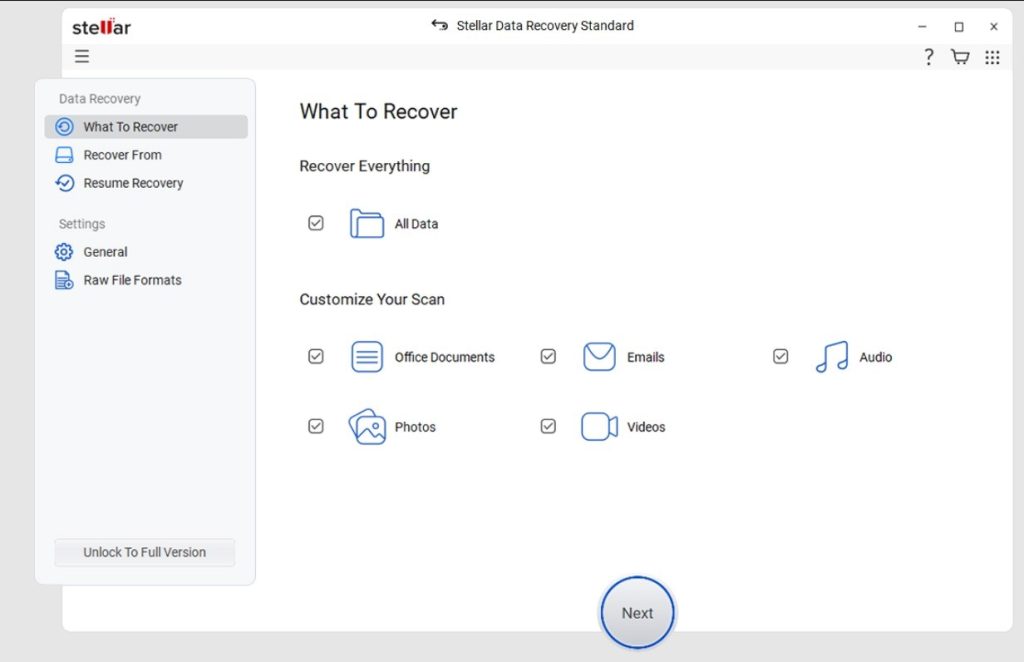
Fix Corrupted Recycle Bin: 5 Methods
Right-click the Recycle Bin icon on your desktop and select Empty Recycle Bin. This should fix any underlying errors. If that doesn’t work, try other methods.
1. Reset Recycle Bin Using CMD
This method removes the corrupted $Recycle.Bin folder and resets everything to default settings.
- Press Win + S to open up search.
- Search for Command Prompt and click Run as administrator.
- Execute this command (replace Z with your drive letter):rd /s /q Z: \$Recycle.bin
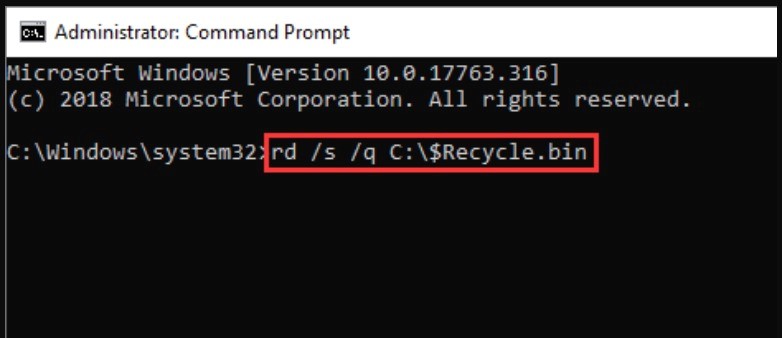
2. Run SFC and DISM Scan to Repair System Files
As already mentioned above, Recycle Bin may run into trouble due to system file corruption. Run the SFC and DISM scans to fix it.
- Press Win + R, type CMD, and hit Run as administrator.
- Execute the command: sfc /scannow
- Next, run this command: DISM /Online /Cleanup-Image /RestoreHealth
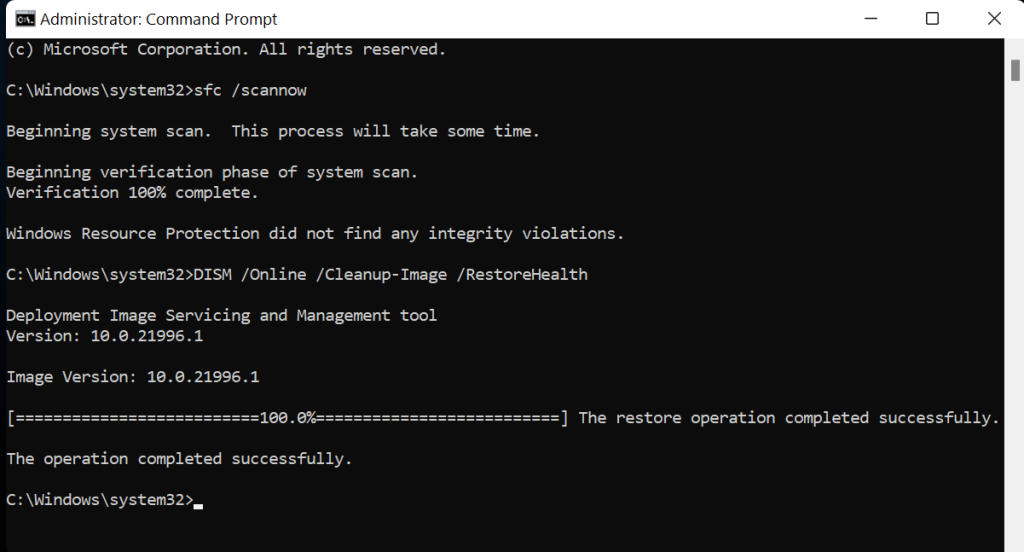
Reboot your PC and see if the error is gone.
3. Check for Disk Errors
CHKDSK is a Windows built-in tool to scan and repair disk-related errors.
- Press Win + S and search CMD.
- Click Run as administrator.
- Run this command (replace Z with your drive letter): chkdsk Z: /R
- Wait for it to complete then Restart your PC.
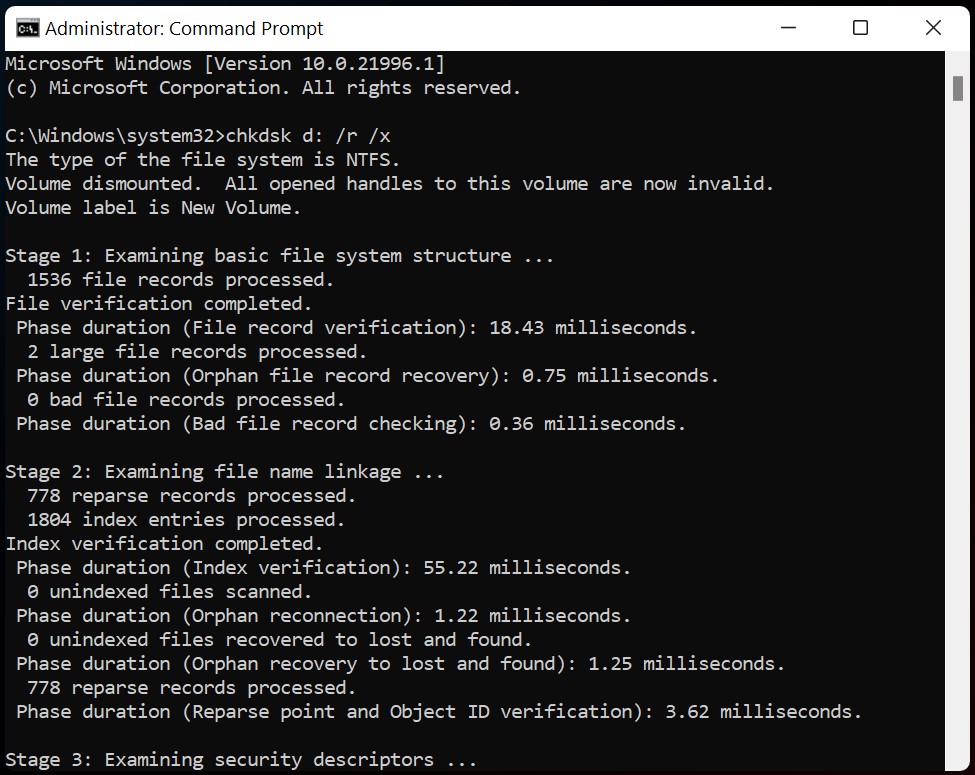
Suggested Read: How to Recover Lost Files After Using CHKDSK Command
4. Scan for Viruses or Malware
Scan your computer for viruses or malware and remove using Windows Defender.
- Press Win + S and search for Windows Security.
- Go to Virus & threat protection > Scan options.
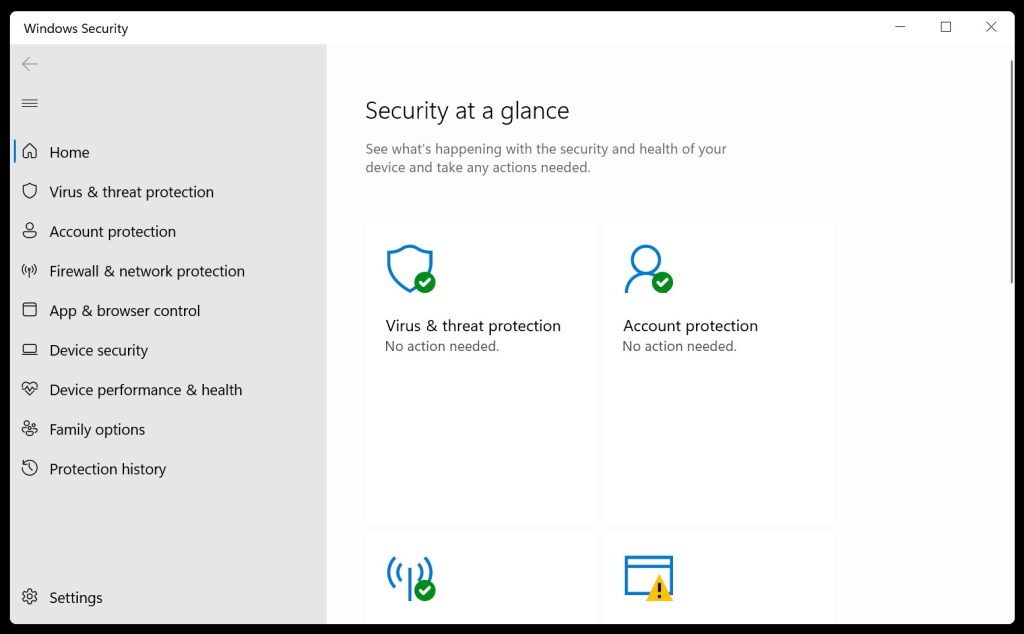
- Select Windows Defender Offline Scan and click Scan Now.
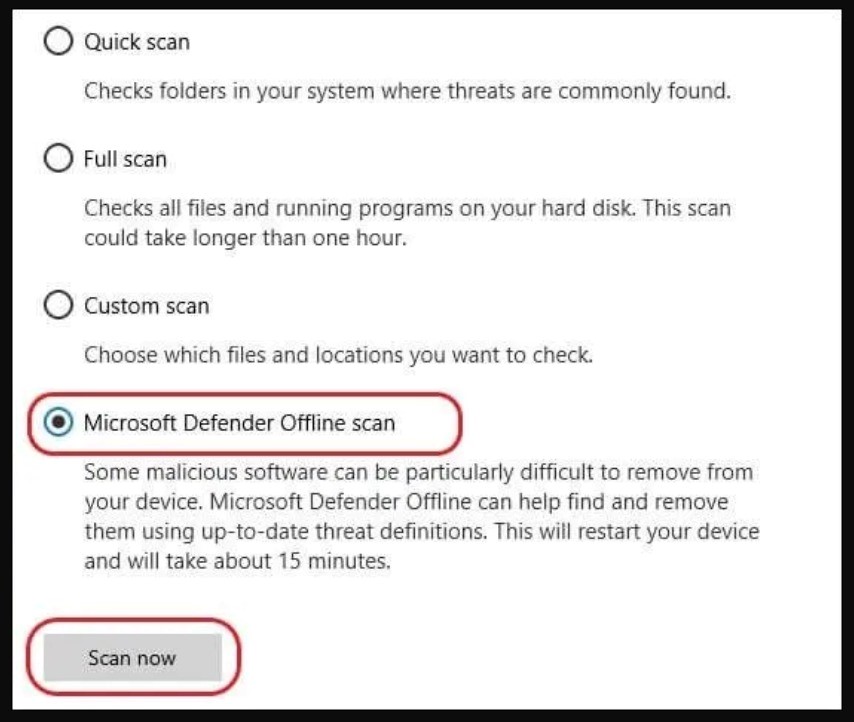
Let Windows Defender do its job.
5. System Restore
Did you notice that the error has started showing up only recently? If yes, it probably means that some recently installed app, or a system modification that you made is causing it. To fix it, perform a system restore to an earlier point when it was working alright.

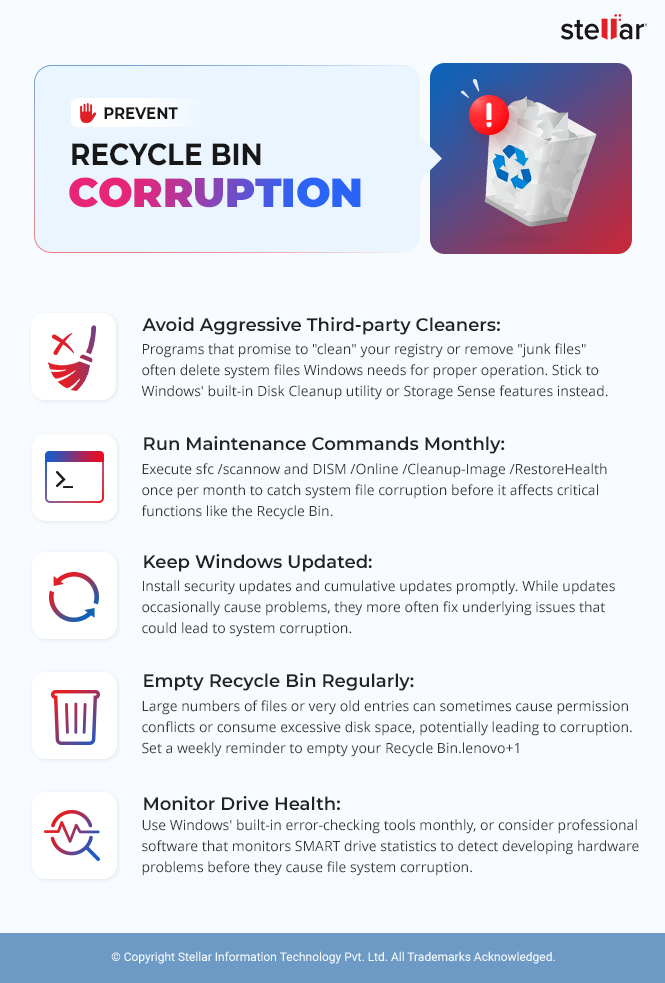
Summing Up
More often than not, if you just reset the Recycle Bin it does a good job at fixing any underlying errors. But if the issue still remains, the alternative troubleshooting methods should get you sorted. Just remember to retrieve your important files before trying any of these fixes as they may put your data at risk.